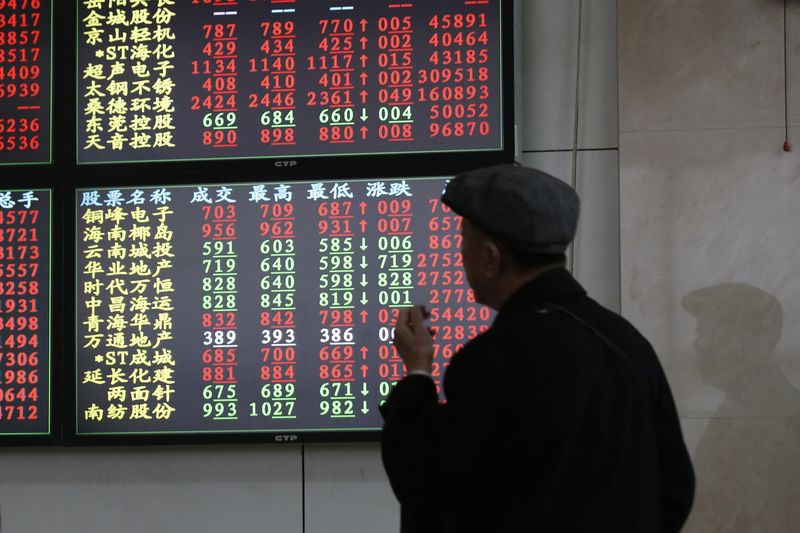By Gina Lee
Investing.com – Asia Pacific stocks were mixed on Thursday morning, as some countries cast doubt on Russian claims that its troops are withdrawing from the border with Ukraine.
Japan’s Nikkei 225 was down 0.27% by 9:24 PM ET (2:24 AM GMT). Trade data released earlier in the day showed that exports grew 9.6% year-on-year, while imports grew 39.6% year-on-year, in January. The adjusted trade balance was at -JPY930 billion ($8.05 billion), while the trade balance was at -JPY2.19 trillion.
South Korea’s KOSPI jumped 1.37%.
In Australia, the ASX 200 gained 0.69%, with data released earlier in the day showing that the employment change was 12,900 and the full employment change was -17,000, in January. The unemployment rate was 4.2%.
Hong Kong’s Hang Seng Index was up 0.22%.
China’s Shanghai Composite inched down 0.03% and the Shenzhen Component was down 0.32%.
Safe-haven assets, including U.S. Treasuries and the Japanese yen, benefitted from investors’ decreased risk appetite. The U.S. led views that Russia had not withdrawn any troops, but instead added as many as 7,000 troops to encircle Ukraine. However, Russia continues to deny any plans to attack Ukraine and dismissed the U.S. claims as “hysteria”.
Investors also digested the minutes from the last U.S. Federal Reserve meeting, released on Wednesday. The minutes showed that the central bank would hike interest rates soon and continue to monitor inflation levels. However, they provided very few new clues on balance-sheet runoff plans.
Some were concerned that tighter monetary policy could impact the economic recovery and destabilize markets even further.
“The fear that investors had coming into the release of the minutes was a very aggressive conversation potentially around balance-sheet reduction or maybe more chatter about a 50-basis point rate hike in March,” John Hancock Investment Management co-chief investment strategist Emily Roland told Reuters.
“I don’t think that any of those fears of even more aggressive hawkish language came through in today’s minutes.”
In the latest comments from Fed officials, Minneapolis Fed President Neel Kashkari said aggressive interest rates hikes would risk a recession, adding “my caution to my colleagues and myself is let’s not overdo it.” Kashkari’s colleagues, Cleveland Fed President Loretta Mester, and St. Louis Fed President James Bullard will speak later in the day.
More Fed officials, including Charles Evans, Christopher Waller, and Lael Brainard, will speak at the U.S. Monetary Policy Forum on Friday.
Across the Atlantic, the European Central Bank is “quite likely” to hike interest rates in 2022 but should not “rock the boat” as it tightens monetary policy, according to Governing Council member Martins Kazaks. G-20 finance ministers and central bank governors will also meet from Feb. 17 to 18.
